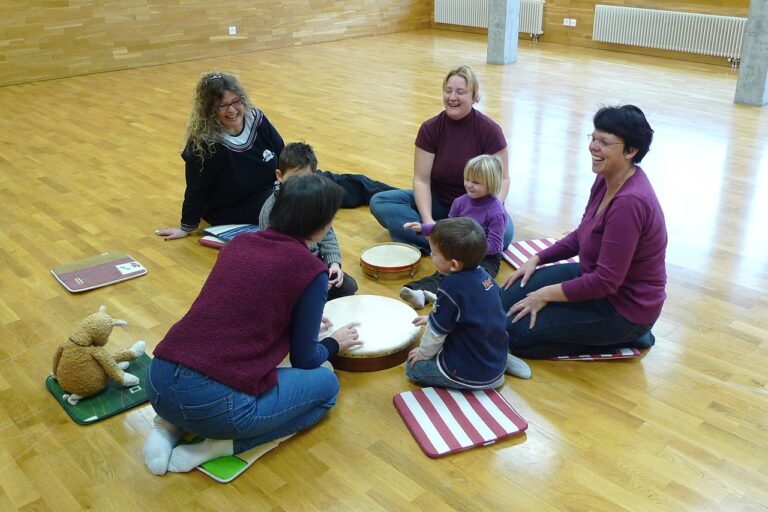THE BENEFITS OF MUSIC

January 22nd, 2023
While most parents acknowledge the developmental benefits of organized sports on young children, music isn’t always treated with the same level of respect, and instead, is often seen as a fun hobby or pastime.
In reality, organized music lessons offer a wide range of cognitive benefits, and introducing children to music at a young age can pay dividends for their future development.
For example, a comprehensive study from the University of Southern California found that children who played and studied music from an early age were more likely to have above-average reading and communication skills compared to those who did not.
This correlation was also observed when it came to language acquisition abilities, with music-playing children fairing far better.
While the study doesn’t offer much in the way of conjecture as to why these connections exist, other studies have shown that music (especially the act of playing music) activates nearly all parts of the brain, including the auditory cortex, the temporal lobes, and even the motor system.
Moreover, while the experiential medium of music is certainly auditory, music itself has an internal language that students must learn if they wish to play music with any degree of proficiency.
Another benefit that parents may be surprised to learn about is the positive impact of music on a child’s fine and large motor skills.
While video games and sports also have a positive impact on motor skill development, music is unique in that the child’s actions (which in the case of instruments like guitar, piano, and violin require significant parallel movement) produce sound – meaning the act of playing music requires synchronization between the motor and auditory parts of the brain in a way that no other activity does.
Additionally (and this should greatly impress parents), kids who study music from a young age are more likely to perform better on standardized math tests than those who don’t.
If this comes as a surprise to you, consider this…
The rules of music (how different notes and intervals interact and relate to one another) are elegantly geometric in nature and mathematically precise.
What’s more, rhythm (especially polyrhythms or cross-rhythms) also requires a level of mathematical precision (in real-time mind you) that some parents tend to overlook.
Finally, we can’t talk about music’s impact on young children without covering emotion management.
As most people would agree, music is a highly emotional phenomenon and artists across centuries have demonstrated a remarkable ability to epitomize all aspects of the human experience into song.
Playing music helps children ‘vocalize’ and familiarize themselves with their emotions in a controlled environment, giving them the ability to better manage and control their emotions as they grow older.
-Written by Ryan Copley (Might and Music)